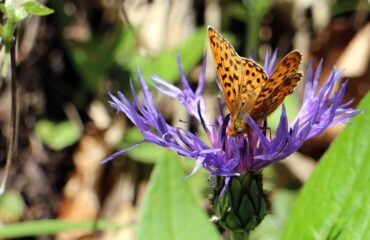
Organic Gardening 101: A Beginner’s Guide to Eco-Friendly Planting

Organic gardening is a sustainable and eco-friendly way of growing plants and vegetables without the use of synthetic chemicals or pesticides. It promotes healthy soil, reduces pollution, and supports biodiversity. If you’re new to gardening and interested in starting your own organic garden, this beginner’s guide will help you get started on the right foot.
Start with the soil: One of the key principles of organic gardening is building healthy soil. Begin by testing your soil to determine its pH level and nutrient content. Add compost, manure, or organic fertilizers to improve soil structure and fertility. Healthy soil will ensure strong plant growth and reduce the need for chemical inputs.
Choose organic seeds and plants: When selecting seeds or seedlings for your garden, opt for organic varieties that have not been treated with synthetic chemicals. Look for certified organic options at local nurseries or online suppliers. These plants are free from harmful pesticides and genetically modified organisms (GMOs), ensuring a more natural growing process.
Practice companion planting: Companion planting involves growing different types of plants together to enhance growth, repel pests, and attract beneficial insects. For example, planting marigolds next to tomatoes can deter nematodes, while basil planted near peppers can improve flavor and ward off pests. Research companion planting combinations that work well together in your garden.
Use natural pest control methods: Instead of relying on chemical pesticides that can harm beneficial insects and pollinators, explore natural pest control methods to manage garden pests organically. Introduce beneficial insects like ladybugs or lacewings to prey on harmful bugs, create physical barriers like row covers to protect plants from pests, or make homemade insecticidal soap sprays using non-toxic ingredients.
Embrace sustainable practices: In addition to avoiding synthetic chemicals in your garden, embrace other sustainable practices such as water conservation, mulching, and composting. Collect rainwater in barrels for irrigation, mulch around plants to retain moisture and suppress weeds, and recycle kitchen scraps into nutrient-rich compost for your garden beds.
Organic gardening is a rewarding hobby that allows you to connect with nature, grow nutritious food, and support environmental sustainability. By following these tips for eco-friendly planting as a beginner gardener, you can create a thriving organic garden that benefits both you and the planet. Start small with a few raised beds or containers if space is limited, experiment with different plants and techniques, and enjoy the process of learning as you cultivate your green thumb in an environmentally conscious way.



